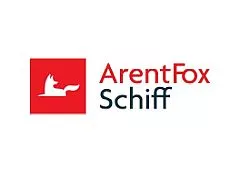- with readers working within the Healthcare industries
How Massachusetts senior living providers need to be thinking about the recently enacted Long Term Care Reform Law and a recent Centers for Medicare & Medicaid Services audit of nursing homes.
On September 6, Massachusetts Governor Maura Healey signed into law House Bill 5033, which aims to improve the quality and oversight of long term care in Massachusetts. The act impacts both nursing home operators licensed by the Massachusetts Department of Public Health (MDPH) and assisted living residence operators licensed by the Massachusetts Executive Office of Elder Affairs (EOEA). Further, the act established a special legislative commission to study oversight of continuing care retirement communities, which could signal increased regulatory oversight of those communities in the future. We expect MDPH and EOEA to promulgate regulations to address the below changes in law.
Skilled Nursing Facility Innovation
The act will establish a no-interest or forgivable capital loan program for skilled nursing facilities to, among other things, develop specialized care units (including infectious disease isolation units and dementia special care units) and support innovative projects such as converting sections of skilled nursing facilities into affordable housing or assisted living units and converting multi-occupancy rooms to single occupancy. The act further authorizes MDPH to promulgate regulations for the construction, physical plant standards, and operations for small house nursing homes, a potential new opportunity for senior living operators. Small house nursing homes are units designed for no more than 14 individuals and modeled as a residential home, which include a central living space, kitchen, dining area, living area, and outdoor space. We will continue to track developments here and provide more information once regulations are promulgated.
Operational Requirements and Allowances
The act will require nursing homes to develop and submit a customized "outbreak response plan," which must be reviewed and submitted to MDPH annually. Facilities must submit their outbreak response plan to MDPH no later than 180 days after September 6. It further requires nursing homes to adopt non-discriminatory practices and provide staff training and education for the care and treatment of LGBTQ+ residents.
On the assisted living side, the act now codifies the ability of assisted living residences to provide "basic health services" by qualified staff if the residence is certified by EOEA to provide such services. "Basic health services" include injections, applying or replacing simple non-sterile dressings, managing oxygen, and applying ointments or drops. Residences that want to be certified to provide these services should be prepared to update and obtain approval of their operating plan.
Licensure and Certification Requirements
Significantly, the act now requires nursing home operators to notify and obtain suitability approval from MDPH prior to entering into a contract with a management company. The management agreement must be provided to MDPH, with only payment terms remaining confidential and exempt from a public record disclosure. This new information will also need to be provided during the next licensure renewal cycle. With respect to suitability, MDPH is now authorized to consider the financial capacity, operational history, and criminal history of the management company, as well as civil litigation histories related to operations, labor and employment, and landlord-tenant for both the licensee and management company.
On the assisted living certification side, the act will now require the disclosure of each officer, director, trustee, and limited partner or shareholder with a 5% or greater interest in the facility — a noted shift from the previous 25% disclosure requirement. Operators should be prepared to comply with this new requirement during their next renewal application or initial application.
Enforcement Authority
The act gives MDPH more power to take enforcement measures against deficient nursing facility operations. MDPH can limit, restrict, suspend, or revoke a license for the facility's failure or inability to provide adequate care, substantial or sustained failure to maintain compliance with the statutes and regulations, and for lack of financial capacity to operate the facility. Furthermore, it gives MDPH the ability to appoint a temporary manager for a period of at least three months if MDPH determines a provider has failed to maintain substantial or sustained compliance with all requirements. The ability to appoint a temporary manager is in addition to MDPH's other enforcement options.
In addition, the fine amount that MDPH may issue for a rule violation has been increased from $50 to $500 for each violation. If MDPH issues an order to correct a violation and it is not corrected in time, each day thereafter constitutes a separate offense. For assisted living facilities, EOEA is now authorized to fine a sponsor or application $500 for each day they fail or refuse to comply with an assisted living requirement.
Ongoing Training and Frequently Cited Deficiencies
The act will establish biannual training for staff of long term care facilities on the most frequently cited deficiencies, deficiency trends, and best practices to ensure resident quality of care. Nursing facility operators may gain insight into what some of the first trainings may encompass, following the audit report posted by the US Department of Health and Human Services Office of Inspector General (OIG) on October 9. The report summarizes OIG's audit of 20 nursing homes in Massachusetts, in which it identified 236 deficiencies related to life safety, emergency preparedness, and infection prevention and control. The report recognizes that many of the deficiencies occurred due to frequent staff turnover contributing to a lack of awareness of federal requirements. However, providers should review the cited deficiencies in the audit report, perform a walk-through of their buildings to identify any similar deficiencies that may exist in their facilities, and implement plans to correct those deficiencies in accordance with state, federal, and local requirements.
The act, as it will be implemented by MDPH and EOEA, will introduce significant opportunities and new requirements on owners and operators of Massachusetts long term care facilities. These developments should be monitored closely in the coming months.
The content of this article is intended to provide a general guide to the subject matter. Specialist advice should be sought about your specific circumstances.




